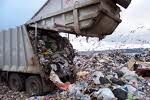An ongoing discussion of green built roofing best practice, the importance of recycling asphalt tear off shingles, and the opportunities for cost savings for roofers, haulers and municipalities with the end use of making roads not waste
Recycled Asphalt Tear Off Shingles (RAS)
EnergySmart contractors are being encouraged to recycle any tear-off shingle waste from local projects...
see www.energysmartyes.com
ROOFCYCLE PROGRAM NEWS
Unfortunately, because of increased recycling volume of shingles, lack of space and limited market demand for RAS, Asphalt Specialties has closed down their recycling operations in Erie and at all their other Denver Metro locations as of 5/28/11, until further notice.
At this time, only Brannan Sand and Gravel, at 61st and Pecos, and Owens-Corning/Heritage Environmental at 64th and Pecos, both in Denver, are receiving tear off shingles for recycling.
New Opportunities for the Use and Promotion of RAS
Though Boulder County tear off shingle recycling operations are now largely curtailed by the shutdown of Asphalt Specialties local collection point, there are other encouraging developments for the eventual end use of RAS in large scale paving projects:
*In March of 2011 The Colorado Department of Transportation approved a revision of Section 401, Reclaimed Asphalt Shingles, which modifies CDOTs Standard Specifications for Road and Bridge Construction (in practical terms this means 10,000 to 20,000 tons of RAS may be used in CDOT approved paving projects this year).
*Asphalt Specialties has been awarded a contract to pave portions of State Highway 36 using a recycled asphalt pavement (RAP) and RAS mix design (the RAS portion shall be manufacturer scrap shingle stock in lieu of tear off shingles). More detail is provided below.
* A formal discussion with Lisa Friend and Jeff Callahan of Boulder County Resource Conservation Division and other recycling contractors occurred in April of 2011. This discussion helped with the gathering of initial information for a proposed feasibility study for the opening of a county Construction and Demolition Waste recycling facility which will include RAS and other construction material.
* The Colorado Springs Chamber of Commerce Sustainability Action Council brought a group of 40 – 50 members of their business community and local government to Boulder County in April with an aim to learn more about our sustainability practices in the public, private and non-profit sectors. This exchange brought about productive dialogue with our Colorado Springs counter parts and how best practices in Boulder County may be useful models for our neighbors to the south.
Our English & Spanish Videos Help Your Team Learn How To:
*Recycle Asphalt Tear Off Shingles for Road Paving
*Create Physical and Intellectual Infrastructure for a Roof Recycling Enterprise
*Achieve Regulatory Compliance
Your Company Can Benefit From:
*Cost Savings
*Green Marketing Opportunity
*Creating a Profitable Recycling Enterprise
*GHG Reduction, Landfill Diversion
*The Latest Testing and Delivery Protocol


This sounds like the future. Now you need to focus on making it economically enticing
ReplyDeleteVery nice blog. Definitely this technique will be more effective for Colorado springs roofing companies in their roofing process.
ReplyDeleteVery nice initiative to recycle the asphalt shingles and even EPDM, traditionally not the best candidates, it seems we are on right path towards a greener future.
ReplyDeletehttp://mydfwroofer.com/